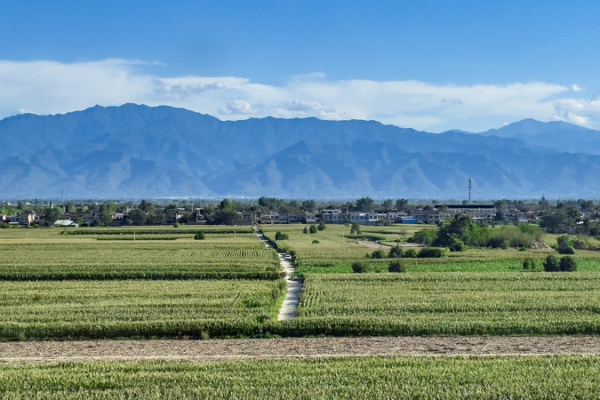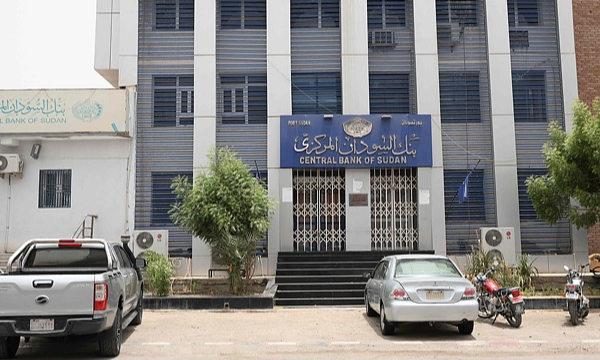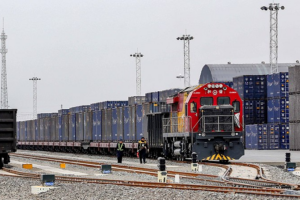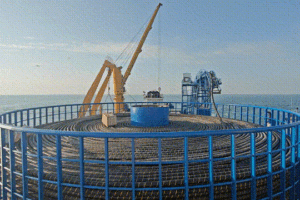
China Raises Alarm Over Japan’s Military Shifts in 2026
Chinese defense officials warn of Japan’s military expansion in 2026, citing threats to regional stability and post-war agreements.

China’s Industrial Profits Surge as Capital Shifts Boost Recovery
China’s industrial profits rebound in 2026 through strategic capital reallocation to advanced manufacturing and green technologies, signaling economic transformation.

China’s 2025: Record Heat Tests Renewable Energy Push
China faced record heat and extreme weather in 2025, testing renewable energy infrastructure amid climate challenges, according to official reports.

China, U.S. Commit to Economic Dialogue Amid 2026 Trade Consensus
China pledges to deepen economic collaboration with the U.S. in 2026, building on 2025 trade consultations and high-level consensus.

China Reports Sustained Ecological Progress in Key Regions
China’s Ministry of Ecology and Environment reports sustained ecological improvements in nine key regions, with intensified conservation efforts driving measurable environmental gains.

Chinese Fossils Reveal Secrets of Earth’s First Mass Extinction
Groundbreaking fossil discovery in China’s Hunan Province reveals new details about Earth’s first mass extinction event 513 million years ago, published in Nature today.

U.S. Immigration Crackdown Sparks Nationwide Protests Amid Rising Tensions
Nationwide protests erupt against U.S. immigration enforcement tactics following fatal shootings, exposing deep political divides and public safety concerns.

Sudan Central Bank Cracks Down on Unlicensed Financial App in RSF-Held Areas
Sudan’s central bank warns against unlicensed financial app in RSF-controlled areas, citing legal and security risks amid ongoing conflict.

US Resumes Food Aid to Somalia After Accountability Agreement
The U.S. resumes food aid to Somalia after accountability measures, amid broader aid cuts and domestic tensions affecting Somali communities.

Nuclear Fusion Breakthroughs Spark Hope for Global Energy Revolution
Recent advancements in nuclear fusion technology signal a potential end to fossil fuel dependence, with scientists optimistic about scalable solutions by the 2030s.

Denmark, U.S. Advance Greenland Dialogue Amid Thawing Tensions
Denmark and the U.S. launch constructive talks on Greenland’s future and Arctic security, signaling eased tensions after recent diplomatic challenges.

Evan Kail’s WWII Album Donation Bridges US-China Cultural Ties
American content creator Evan Kail discusses donating a rare WWII photo album to China, highlighting cultural bridges and US-China relations in 2026.

U.S. ‘Kill Line’ Debate Exposes Deepening Economic Divides in 2026
The viral ‘U.S. kill line’ concept highlights systemic economic risks and widening inequality in American society, sparking global debate in 2026.

Japan’s Takaichi Urged to Reconsider Taiwan Stance Amid Rising Tensions
Japan’s PM faces backlash over Taiwan remarks, testing constitutional limits and regional stability as historical sensitivities resurface.

Global Gold Demand Hits Historic 5,000 Tonnes in 2025 as Prices Soar
Global gold demand surpassed 5,000 tonnes in 2025 amid record prices, reaching $555 billion valuation, World Gold Council reports.

Vietnam-EU Forge Comprehensive Strategic Partnership to Boost Trade, Climate Goals
Vietnam and the EU elevate bilateral relations to a comprehensive strategic partnership, focusing on trade, climate action, and digital innovation amid shifting global dynamics.

Federal Judge Halts Trump-Era Refugee Detention Policy in Minnesota
Federal judge blocks Trump-era policy detaining refugees in Minnesota, orders immediate releases and reaffirms legal protections for resettled populations.

Carnival Meets Year of the Horse: A Cultural Fusion Through Paper Art
Traditional Chinese papercutting meets global Carnival celebrations in 2026’s unique cultural alignment of Lunar New Year and Fat Tuesday festivities.

US Markets React to Fed Independence Concerns Amid Policy Shifts
US markets face turbulence as political pressures on the Federal Reserve spark investor anxiety, with ripple effects across Asian economies in early 2026.

Finland’s ‘Values-Based Realism’ Reshapes China Ties Amid Global Shifts
Finland’s ‘values-based realism’ gains traction as global leaders seek pragmatic diplomacy. Explore its impact on China-EU relations in 2026.













